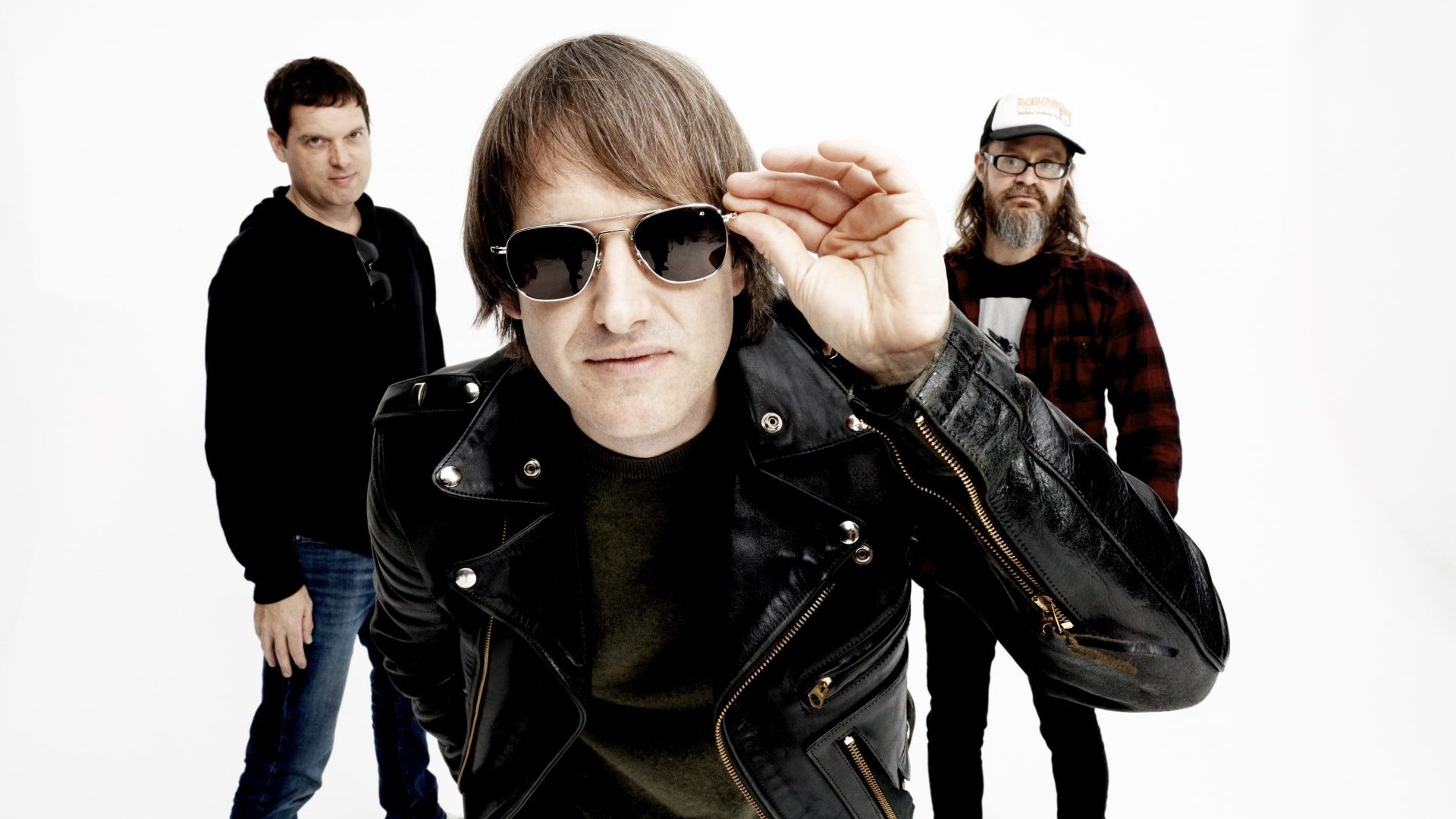If you’re of a certain age, the North London borough of Camden inevitably evokes Britpop. The 90s scene seemed to centre on a few square miles, in particular the Good Mixer pub (still there, but catering more to ageing punks these days). So it seems fitting it’s here, in the boardroom of their indie label Fierce Panda, that I meet Britpop’s great survivors, Ash.
The band is embarking on a joint headline tour with the Subways on September 15, taking in Germany, the Netherlands and Denmark, among others. Which, inevitably, provokes talk of how Brexit has hit touring bands,
“It’s got figured out a bit more now,” says Wheeler, but despairs: “It’s such a pain in the arse, Brexit.”
“I saw something the other day, statistics saying something like 49% of bands are saying it’s impacting their touring and to be honest I’m surprised it’s that little,” says drummer Rick McMurray. Wheeler agrees it “must be so hard” for new bands without record company support.
“We were just fortunate to live in a time when you didn’t have to think about that,” says McMurray. “All you had to do was jump on a ferry, you didn’t have to become this form-filling thing. I kind of got in a band to not fill in forms, you know what I mean?”
That Ash are Britpop is controversial. They were in it, perhaps, but not fully of it. They are, of course, from Northern Ireland.
“Well, we definitely benefited from it, so there was a good buzz from being around it,” says singer Tim Wheeler, now 46 and looking more centrist dad than rock god.
“But at the same time, we were like, you know, the sort of flag-waving stuff of Cool Britannia, Noel Gallagher with the Union Jack guitar… that’s stuff we would distance ourselves from completely. And we were also way more interested in American music too. But we were lucky we were around at the same time as all these other bands who were getting guitar music into the charts and we were part of that wave.”
McMurray adds: “I still see people arguing about it on social media amongst fans. There’s Britpop fans going ‘of course they’re Britpop’. I’ll leave that argument for you.”
“We were mates with Menswear around that time,” says Wheeler. (This is almost certainly the first mention of Menswear in The New European). “We sort of became friends with a bunch of those bands playing festivals, or we’d go to the NME awards. We were definitely part… but we had a slightly wider thing. We’d be on the cover of Kerrang! and we’d be on the cover of the NME and Melody Maker, and we’d also be on the cover of Smash Hits. We had this broad reach, somehow. There’s a benefit of being around it, but luckily we didn’t sink with it too.”
Not only did they not sink with it, they never – unlike Blur or Pulp, who both reformed this year to play huge concerts – even took a hiatus. “We never got big enough to take 10 years off,” says bassist Mark Hamilton, who isn’t technically in on this interview, from the other side of the room.
Their new album, Race The Night, is, to use a technical term, an absolute belter – all huge riffs and big, anthemic choruses of a type which seemed to go out of fashion 20 years ago. It had “an odd genesis”, McMurray says, beginning life as what Wheeler calls a “half-rock, half-synthy kind of album” before the pandemic. The band were on tour in Europe when Covid hit and a gig in Italy was the first to be cancelled. (“We were going north so we thought we’d be alright,” says McMurray. “And then it started chasing us,” adds Wheeler.)
When they finally got back into the studio, another album emerged. “Instead of having this album which goes in about 10 different directions at once, why don’t we try and streamline it so we’ve got a bit of a kind of focused idea to the record?,” McMurray recalls the conversation as going. “So we ended up putting more sort of guitar stuff on this record.”
“And we recorded five or six more songs to fit in with the vibe of it, as rock ones,” adds Wheeler. “And then it really took shape at the very end, just felt like, ok, this is a complete kind of rock record. It was a bit too schizophrenic before.”
McMurray says: “During Covid there was over a year when we didn’t play at all, which is the biggest gap in our entire career going back to ‘92, so I think when we got back into a room and continued the writing, at that point everyone was just buzzing… the guitar stuff was really exciting at that point. A lot of those ideas from those first couple of days have ended up on this record, actually.”
● Race The Night is released on September 15, with the band’s tour starting in Belfast that night










